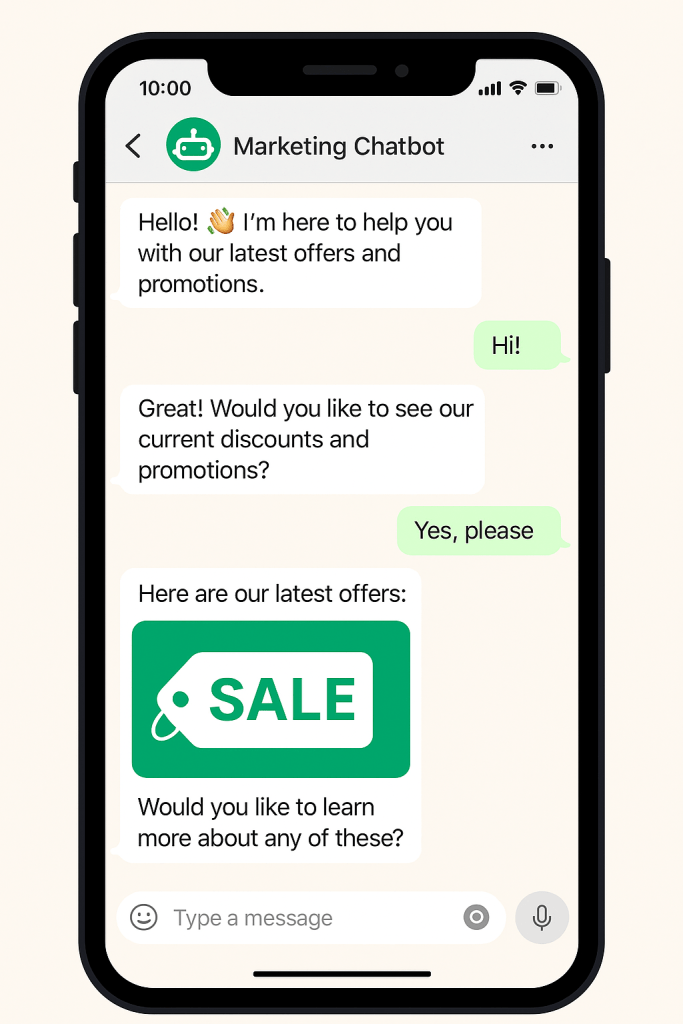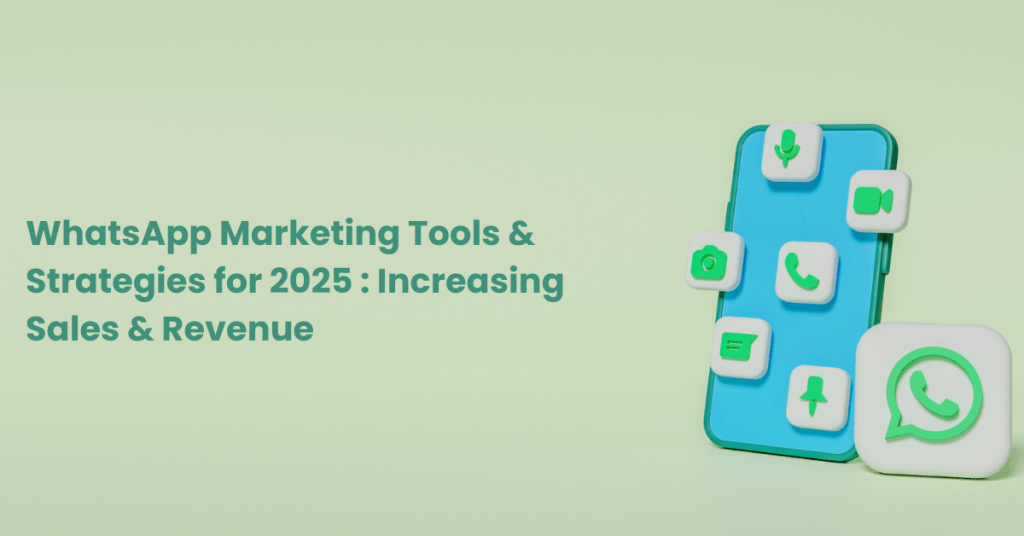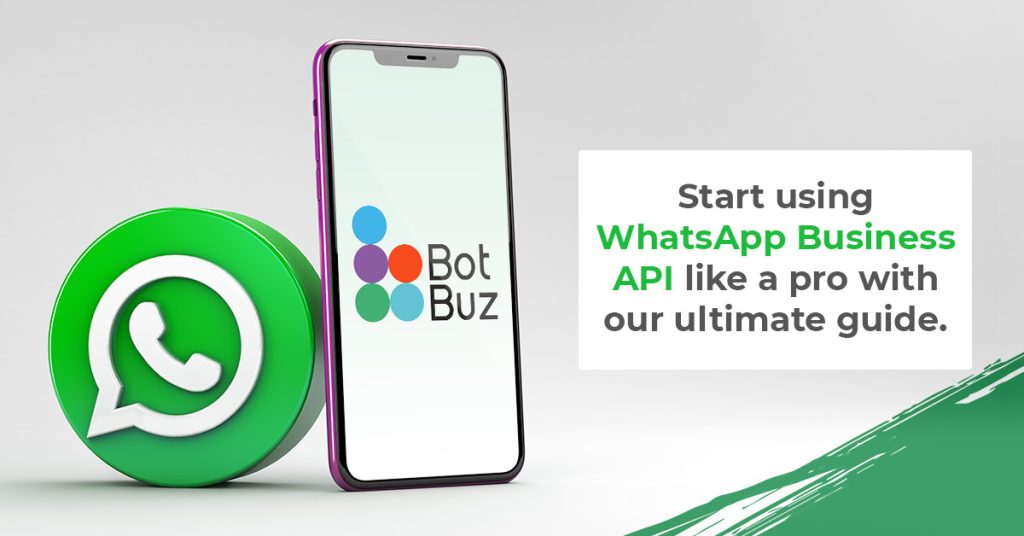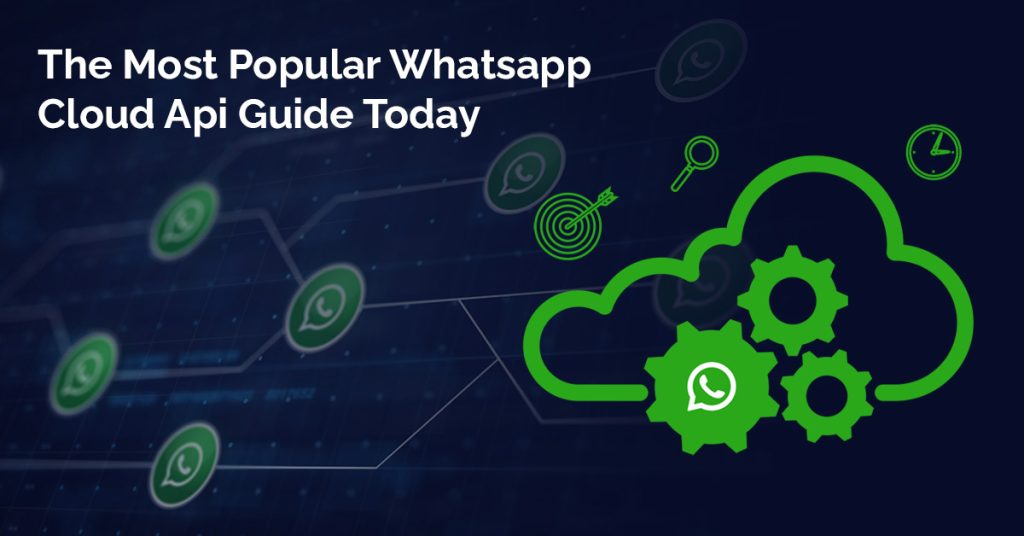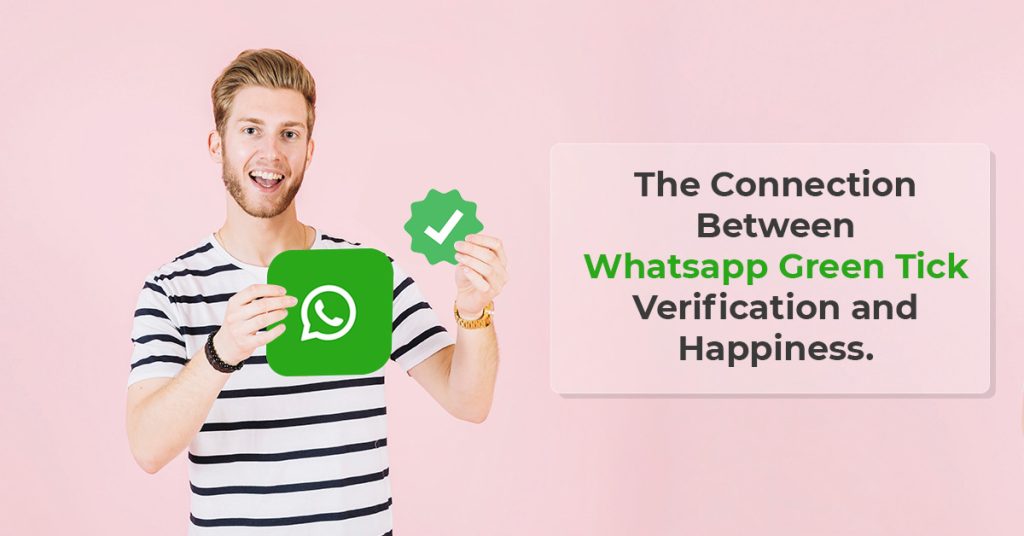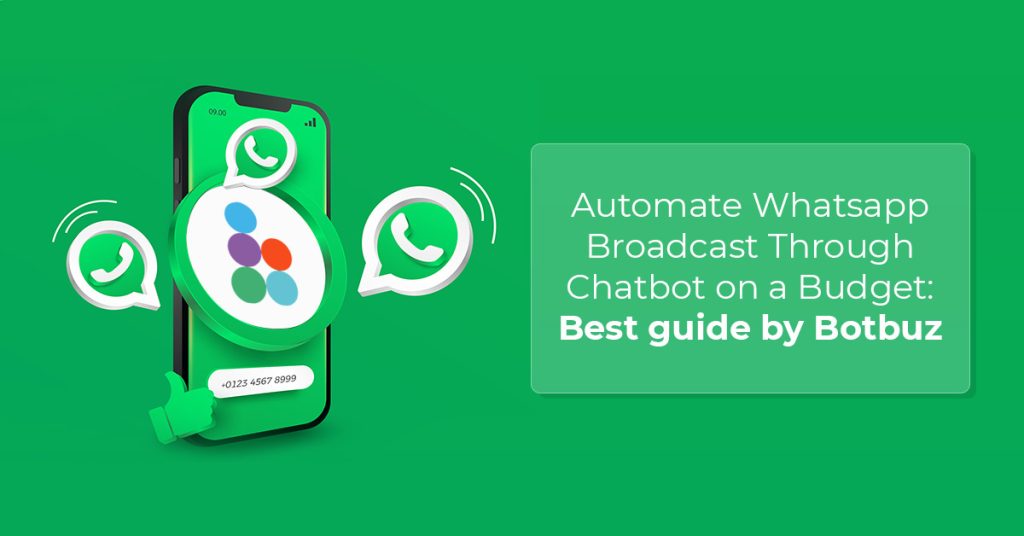- Businesses Using WhatsApp for Marketing :
- What is WhatsApp Marketing?
- WhatsApp Marketing Strategy To Boost Your Sales :
- Most Used WhatsApp Marketing Message Examples :
- WhatsApp Marketing Tools in 2025 :
- How to Maximize Revenue with WhatsApp Marketing :
- How WhatsApp Automation Tools Actually Work :
- Using Botbuz WhatsApp API Services in Marketing :
Businesses Using WhatsApp for Marketing :
WhatsApp has become a vital tool for business communication and marketing. With a huge global user base, it allows companies to connect with customers. It is directly through features like the WhatsApp Business App and Platform. It’s now the preferred communication channel for millions, with high engagement and open rates far surpassing email and SMS.
Businesses can’t ignore WhatsApp because it offers a cost-effective way. It helps to build personalized relationships, share rich media, and increase sales. The platform’s direct, one-on-one communication leads to higher conversion rates & a strong return on investment.
What is WhatsApp Marketing?
WhatsApp marketing uses the platform to communicate with customers. It sends promotions, and provides support. The free WhatsApp Business App is for small businesses. It offers basic features for one-on-one communication. The paid WhatsApp Business API is for larger companies. It allows for large-scale messaging, automation, and integration with other systems. WhatsApp is more effective than SMS or email. It has high open rates, rich media capabilities & provides two-way, conversational communication.
WhatsApp Marketing Strategy To Boost Your Sales :
Foundational Steps for a WhatsApp Strategy
Download WhatsApp Business App
For any small business, the journey begins with the WhatsApp Business App. It’s a free and simple-to-use tool that allows a business to separate its personal and professional communications. The app provides a foundation for a professional presence. Thus, offering features that a personal WhatsApp account lacks.
Create a WhatsApp Business Profile
A business should immediately create a professional profile. This profile acts as a digital storefront, showcasing the brand’s identity. It should include essential details like the company name, logo, a brief description, contact information, and business hours. A complete and professional profile builds credibility. It helps customers identify the business as legitimate and trustworthy.
Personalize WhatsApp Messages
To build strong customer relationships and trust, businesses must personalize their messages. This involves addressing customers by name & tailoring the content to their specific interests or past behavior. Instead of generic mass messages, a personalized approach makes customers feel valued. Thus, increasing engagement and loyalty.
Create Broadcast Lists
Once a business has a list of opted-in customers, it can use Broadcast Lists to send messages to multiple contacts at once. A message sent through a broadcast list appears as a private chat to each recipient. Thus, making it feel personal while allowing the business to efficiently reach a large audience with a single message. This is a crucial step for scaling one-to-one communication.
Craft a Product Catalog
A business can create a visual product catalog. It is directly within the WhatsApp Business App or API. This feature allows customers to browse products and services within the chat, complete with images, descriptions, and prices. This in-app shopping experience removes friction. Thus, making it easier for customers to discover & inquire about products without leaving the platform.
Advanced Strategies for Sales and Engagement
Implement a WhatsApp Chatbot
For businesses with a high volume of inquiries, a chatbot is an invaluable tool. It can be implemented to automate responses to common questions. Also it handles initial sales conversations, and guides customers through the sales funnel. A well-designed chatbot ensures that customers receive instant replies 24/7. Thus, improving efficiency and customer satisfaction.
Monitor Conversion Rate
A successful WhatsApp marketing strategy requires continuous monitoring. Businesses should track key metrics like open rates, click-through rates, and conversion rates. It helps to understand the effectiveness of their campaigns. By analyzing this data, a company can refine its messaging, timing, and offers. Thus, optimizing performance and boosting sales.
CTWA (Click-to-WhatsApp Ads)
Businesses can leverage CTWA ads to drive traffic from platforms. It includes Facebook and Instagram directly into a WhatsApp chat. These ads feature a “Send Message” button that initiates a conversation with the business on WhatsApp. Thus, converting social media interest into direct, conversational leads. This is a powerful method for acquiring new customers.
Carousel Messages and WhatsApp Catalogs
To showcase multiple products in one message, a business can use carousel messages. This interactive format allows customers to swipe through a series of cards. Each features a different product with its own image and call-to-action button. When combined with WhatsApp Catalogs, this provides an engaging and seamless visual browsing experience directly within the chat interface.
Challenges and Quizzes
Beyond transactional messaging, a business can use WhatsApp for fun, gamified customer engagement. Running challenges, quizzes, and giveaways can generate excitement. It creates a community around the brand. This approach increases engagement. It also helps gather valuable data on customer preferences and interests.
Cutting-Edge and Future-Ready Tools
WhatsApp Flows
WhatsApp Flows are interactive. They are guided experiences designed to simplify complex tasks for customers. It includes tasks like booking an appointment or filling out a multi-step form. Businesses can create these native, in-chat workflows to provide a more streamlined & intuitive experience. Thus, reducing drop-offs and improving the overall user journey.
WhatsApp Pay
WhatsApp Pay allows for seamless in-chat payments. It completes the entire customer journey from product discovery to purchase within the conversation. This feature eliminates the need for customers to navigate to an external website to complete a transaction. Thus, making the buying process faster and more convenient.
Most Used WhatsApp Marketing Message Examples :
Service Conversations
These messages are all about providing customer support and resolving issues. A business might use a service conversation to answer a customer’s question about a product. Also it helps them with a return, or guide them through a technical problem. The goal is to offer timely and helpful support directly within the chat. Thus, making the customer feel valued and heard.
Utility Conversations
Utility conversations are focused on providing important, timely information to the customer. This category includes automated messages for things like order confirmations, shipping updates, appointment reminders, and ticket alerts. These messages are crucial for building trust. It ensures a smooth customer experience, as they provide transparent & real-time information about a service or purchase.
Authentication Conversations
Authentication conversations are used for security and verification purposes. The most common example is sending a One-Time Password. It is for login verification or a transaction. These messages are highly secure and reliable. Thus, making WhatsApp an excellent channel for protecting customer accounts and ensuring that only the correct user can access sensitive information.
Marketing Conversations
Marketing conversations are designed to promote a brand’s products or services. This can include sending messages about special discounts, new product launches, seasonal promotions, or exclusive offers. These messages are meant to drive sales. It encourages customers to engage with the brand’s latest campaigns.
WhatsApp Marketing Tools in 2025 :
WhatsApp marketing is driven by a range of sophisticated tools. It enables businesses to scale their communication and automate key processes. These tools go far beyond the basic features of the WhatsApp Business App. Thus, allowing for advanced, data-driven strategies.
1. WhatsApp Business API
The WhatsApp Business API is the foundational tool for any serious WhatsApp marketing strategy. It is not an app but a programmatic interface. It allows medium and large-sized businesses to integrate WhatsApp into their existing systems. The API enables advanced automation, bulk messaging & the management of high volumes of conversations. In 2025, the API will see updates that include dynamic conversation flows. It is adapted based on user replies, & faster performance to handle large-scale campaigns.
2. Chatbots & AI Assistants
AI has become central to WhatsApp communication. Chatbots and AI Assistants are used to automate conversations. It handles everything from common customer questions to guiding customers through a sales journey. Tools like Botpress, Landbot, and Gallabox are leading platforms for building these chatbots. They can be trained to provide instant & human-like responses. Thus, freeing up human agents to focus on more complex issues and providing 24/7 support.
3. Broadcast Messaging Tools
To reach a large audience without manual effort, businesses rely on broadcast messaging tools. These tools, often integrated with the WhatsApp Business API. It allows a company to send promotional messages to a large, segmented list of customers. The key is to avoid spamming by personalizing messages with customer names & tailoring content based on their past behavior or preferences.
4. WhatsApp CRM Integration
A crucial tool for personalized marketing is WhatsApp CRM Integration. By connecting WhatsApp with a Customer Relationship Management (CRM) system like HubSpot or Salesforce, businesses can centralize customer data and conversation history. This gives sales and marketing teams a complete view of each customer. It allows them to send highly targeted and relevant messages. Thus, improving the effectiveness of sales campaigns and customer service.
5. Analytics & Tracking Tools
To measure the success of any campaign, analytics and tracking tools are essential. These tools, offered by platforms, are built on the WhatsApp Business API. It provides businesses with crucial data. They can measure key metrics like message open rates, customer engagement & conversion rates. By analyzing these insights, businesses can understand what’s working and what isn’t. Thus, allowing them to continuously optimize their strategy for better results.
How to Maximize Revenue with WhatsApp Marketing :
To maximize revenue with WhatsApp, businesses should use conversational commerce. It helps to build trust and make the buying process feel personal. They can reduce abandoned carts by sending timely, personalized reminders to customers. Finally, they can increase the value of each sale through smart upselling & cross-selling. Thus, offering complementary products based on a customer’s purchase history.
How WhatsApp Automation Tools Actually Work :
WhatsApp automation tools use smart scheduling, AI chatbots & trigger-based messaging to streamline communication. They can automatically send messages at optimal times, handle customer inquiries 24/7, and send real-time updates based on customer actions. These tools also integrate with CRM systems to personalize messages. It tracks campaign performance & makes business communication on WhatsApp more efficient and effective.
Using Botbuz WhatsApp API Services in Marketing :
Botbuz is a service that helps businesses use the WhatsApp Business API for marketing. It simplifies automation and personalization with a no-code chatbot builder. Also allowing companies to easily create and deploy chatbots. Botbuz also centralizes conversations from multiple platforms into one inbox. It makes it easier to manage customer interactions. By creating intelligent workflows & enabling quick setup, the service helps businesses boost engagement & sales.
Conclusion :
WhatsApp has become an essential marketing tool. It has high engagement and personal nature. The most effective strategies use a combination of the WhatsApp Business API, AI-powered chatbots, and CRM integrations. It helps to automate communication, personalize messages, and track performance.
Platforms like Botbuz simplify this process. It offers easy-to-use tools for building chatbots & managing all conversations in one place. Thus, ensuring a seamless, personal customer experience. In short, businesses that adopt a strategic, tool-driven approach to WhatsApp marketing will successfully build customer trust and boost revenue.
In conclusion, the future of marketing is conversational. Businesses that want to thrive must embrace WhatsApp as more than just a messaging app. It’s a complete ecosystem for conversational commerce. By using the right strategies and the right tools, such as the ones offered by Botbuz, companies can build trust. It deepens customer relationships & unlock new levels of revenue. Thus, connecting with their audience in the most direct and meaningful way possible.
